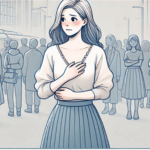Why anxiety can lead to anger. Priory. (n.d.). https://www.priorygroup.com/blog/why-anxiety-can-lead-to-anger
Walsh, L. M., Benjamin Wolk, C., Becker-Haimes, E. M., Jensen-Doss, A., & Beidas, R. S. (2017). The Relationship Between Anger and Anxiety Symptoms in Youth With Anxiety Disorders. Journal of Child and Adolescent Counseling, 4(2), 117–133. https://doi.org/10.1080/23727810.2017.1381930
Anxious and aggressive: The co‐occurrence of IED with anxiety disorders… (n.d.-a). https://onlinelibrary.wiley.com/doi/10.1002/da.22428
Sahu A, Gupta P, Chatterjee B. Depression is More Than Just Sadness: A Case of Excessive Anger and Its Management in Depression. Indian J Psychol Med. 2014 Jan;36(1):77-9. doi: 10.4103/0253-7176.127259. PMID: 24701016; PMCID: PMC3959025.
Smith, Sara. “BHP Blog – Behavioral Health Partners (BHP).” BHP Blog – Behavioral Health Partners (BHP) – University of Rochester Medical Center, 10 April 2018, https://www.urmc.rochester.edu/behavioral-health-partners/bhp-blog/april-2018/5-4-3-2-1-coping-technique-for-anxiety. Accessed 9 April 2025.
“Any Anxiety Disorder – National Institute of Mental Health (NIMH).” National Institute of Mental Health, https://www.nimh.nih.gov/health/statistics/any-anxiety-disorder. Accessed 8 April 2025.https://www.nimh.nih.gov/health/statistics/any-anxiety-disorder
“Anxiety.” American Psychological Association, https://www.apa.org/topics/anxiety. Accessed 8 April 2025. https://www.apa.org/topics/anxiety#:~:text=Anxiety%20is%20an%20emotion%20characterized,the%20APA%20Dictionary%20of%20Psychology














